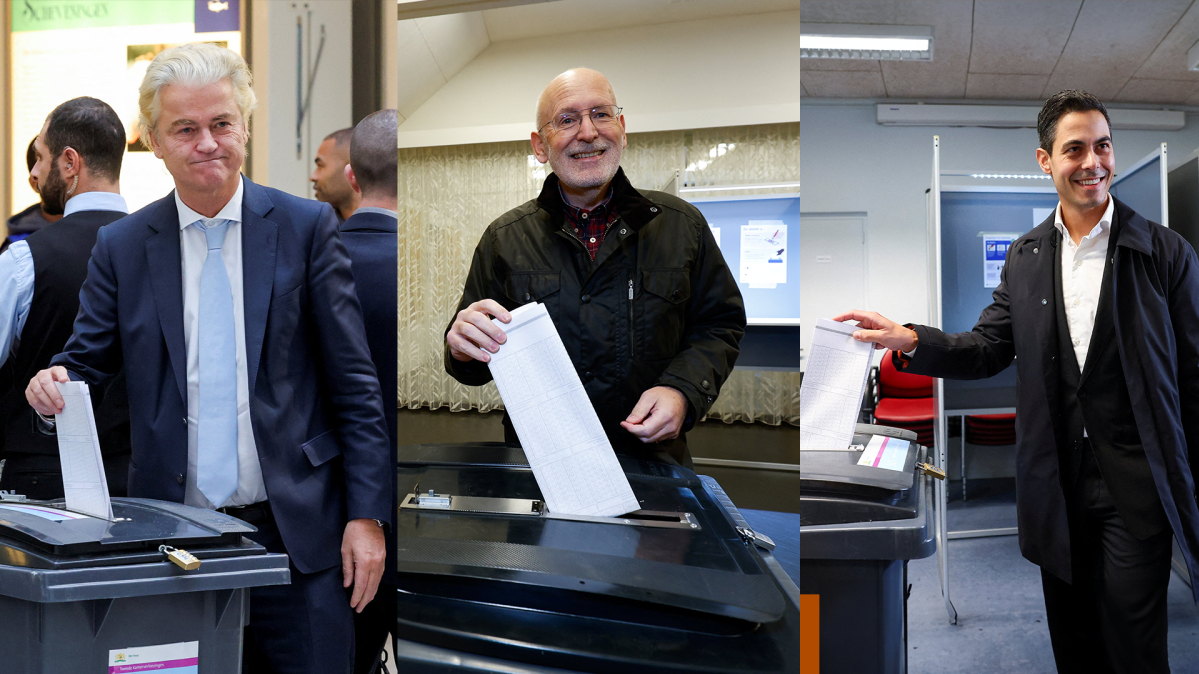Ukraine claims critical strike on Russian submarine in Novorossiysk
Ukraine’s domestic security service, the SBU, says it struck a Russian Kilo‑class submarine in the Black Sea port of Novorossiysk, causing critica...

Dutch voters headed to the polls on Wednesday to decide whether to continue the anti-immigration nationalism championed by populist leader Geert Wilders, who collapsed the previous conservative coalition after two turbulent years, or to steer the country back towards the political centre.
With nationalist movements gaining traction in Britain, France, and Germany, the Dutch election serves as a barometer for whether Europe’s populist momentum is still rising or beginning to wane.
Wilders’ Freedom Party (PVV) secured a shock victory in the 2023 election, forming an all-conservative coalition though his partners refused to endorse him as prime minister. He eventually brought down the government in June over its rejection of his hardline refugee policies.
Tight race in opinion polls
Recent opinion polls show that Wilders’ once substantial lead has evaporated, leaving his party neck and neck with rivals across the political spectrum. The mainstream centre-right VVD and Christian Democrats, along with other major parties, have ruled out joining a coalition with Wilders, meaning he would only be able to form a government if his party wins by an unexpectedly large margin.
Polling stations opened early, some as soon as 6:30 a.m. (05:30 GMT), to accommodate commuters, with the first exit poll, typically a reliable indicator due after voting closes at 9 p.m.
Coalition talks expected to be complex
Dutch politics have become increasingly fragmented, making the formation of stable coalitions an arduous process that often stretches over weeks or even months. Nearly half of voters were still undecided in the days leading up to the vote, according to surveys.
Wilders, one of Europe’s most established populist figures, is best known for his anti-Islam stance and lives under constant security protection due to death threats. His proposals include rejecting all asylum applications, sending male Ukrainian refugees back home, and diverting development aid to fund domestic energy and healthcare subsidies—measures that would contravene EU law.
Moderates and new voices seek momentum
Centre-left party D66, led by Rob Jetten, 38, has gained ground with a campaign built around optimism and renewal. Drawing comparisons to Barack Obama’s “Yes, we can” message, Jetten has called for large-scale housing construction and greater investment in education, while pledging to move political debate beyond endless wrangling over migration.
“What the Netherlands is suffering from is 20 years of the same political talk about asylum without any results,” Jetten said during the final televised debate. “My ambition is that in four years we won’t need to keep talking about asylum because we’ll have fixed it.”
Wilders’ support softens
In Volendam, a fishing town near Amsterdam and a traditional Wilders stronghold, many voters remained loyal to the populist leader despite the previous coalition’s failure to deliver tougher immigration controls or resolve the housing shortage.
“We need to be able to look after our own people first, and that’s why I’m voting for PVV,” said Jaap Schilder, a 40-year-old fishmonger and local politician.
Still, Wilders’ support has slipped, with some voters gravitating towards the Christian Democrats under Henri Bontenbal, who is campaigning on stability and traditional values. Analysts say the decline reflects frustration over political infighting and concern over Wilders’ outspoken admiration for U.S. President Donald Trump, whose leadership style and democratic brinkmanship have unsettled Dutch moderates.
“I wouldn’t sleep well at night,” said Greta Blakborn, a Volendam pensioner and Labour–Green Left activist, when asked about the prospect of a Wilders-led government.
Russia’s human rights commissioner, Tatyana Moskalkova, has said that Ukraine has not provided Moscow with a list of thousands of children it alleges were taken illegally to Russia, despite the issue being discussed during talks in Istanbul.
Iranian authorities have seized a foreign tanker carrying more than 6 million litres of smuggled fuel in the Sea of Oman, detaining all 18 crew members on board.
An explosive device found in a vehicle linked to one of the alleged attackers in Bondi shooting has been secured and removed according to Police. The incident left 12 people dead.
The latest round of clashes between Thailand and Cambodia has left 15 Thai soldiers dead and 270 others injured, Thailand’s Ministry of Defence spokesman Surasant Kongsiri said at a press conference on Saturday.
Syrian President Ahmad al-Sharaa has offered condolences to President Donald Trump following an ISIS attack near the ancient city of Palmyra that killed two U.S. soldiers and a civilian interpreter, Syrian and U.S. officials said Sunday.
Ukraine’s domestic security service, the SBU, says it struck a Russian Kilo‑class submarine in the Black Sea port of Novorossiysk, causing critical damage.
Washington’s seizure of a tanker carrying Venezuelan oil shows a shift from financial sanctions to direct maritime action, further straining relations with Caracas and increasing risks for global shipping.
Anewz brings you the best videos of the day from around the world covering everything from uplifting events to updates in conflict zones.
French senators on Monday approved a revised 2026 budget bill that the government warned could worsen the country’s fiscal deficit, setting the stage for tense negotiations between parliament’s two chambers later this week.
Flooding in Bolivia’s eastern Santa Cruz region has killed at least 20 people after an overflowing river swept through multiple communities, authorities said on Monday, with the toll expected to increase as rescue teams reach areas that were previously inaccessible.
You can download the AnewZ application from Play Store and the App Store.

What is your opinion on this topic?
Leave the first comment